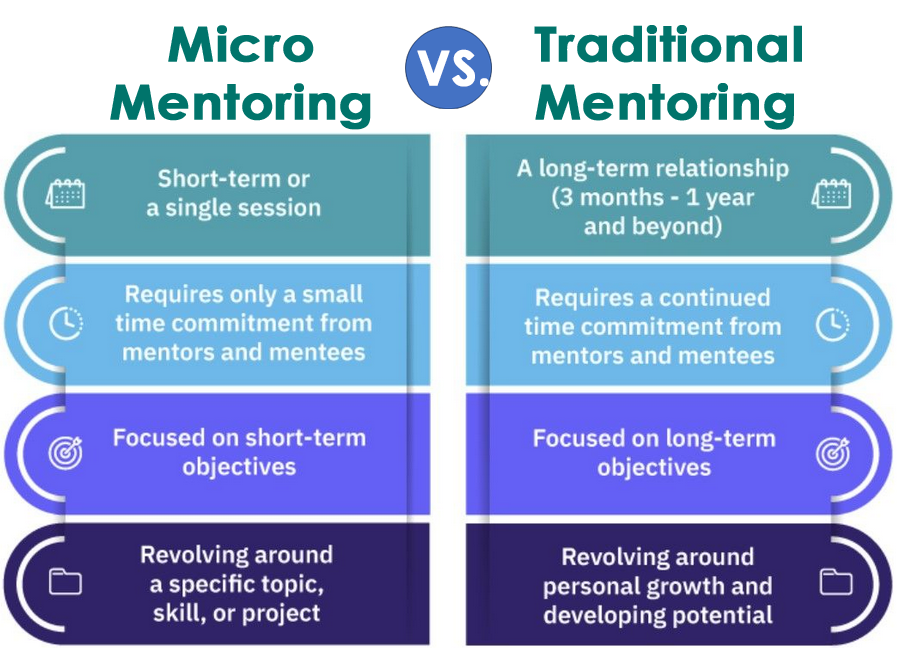January is National Mentoring Month
January is recognized as National Mentoring Month, a month-long opportunity to focus on being a mentor and raising awareness of mentoring. Founded in 2002, National Mentoring Month celebrates mentoring and the positive effect it can have, particularly on young people. Its goals are to:
- Raise awareness of mentoring in its various forms.
- Recruit individuals to mentor, especially in programs that have waiting lists of young people.
- Promote the rapid growth of mentoring by recruiting organizations to engage their constituents in mentoring.
Mentoring in Mental Health Clinical Research
Mentoring plays an important role in mental health clinical research, guiding and shaping the next generation of researchers, clinicians, and advocates. In the realm of mental health research, where compassion and scientific rigor intersect, effective mentoring is crucial for nurturing talent, fostering empathy and ethics, and advancing rigorous attention to detail and understanding of the important role every staff member plays in a research study.
Mentoring in mental health clinical research isn’t just about passing on knowledge; it’s a formal or informal journey that empowers mentees to appreciate research methodologies, ethical considerations, and the balancing of care and compassion with strict adherence to protocol guidelines.
Importance of Mentoring in Mental Health Clinical Research
Mentoring provides a unique opportunity for mentees to gain insights from experienced professionals, offering guidance on study protocols, ethical practices, and collaboration. It’s a bridge between sensitivity and empathy and the scientific acumen required in clinical research.
Mentors serve as role models, instilling not just technical skills but also ethical values, empathy, and a patient-centered approach in mentees.
Mentorship Initiatives and Resources
Several organizations and initiatives focus on mentoring in mental health clinical research, aiming to bolster the next generation of mental health professionals:
- The STARR Coalition Mentoring Program: The STARR Coalition offers mentorship opportunities connecting aspiring mental health researchers with seasoned professionals. This new program aims to foster collaboration and knowledge transfer in specific domains within mental health research through participation in workgroups and connections to colleagues in mental health research. Contact us to join the STARR Community.
- Mental Health America (MHA): MHA provides resources and guidance on mentoring programs in mental health, focusing on supporting individuals living with mental illness and empowering professionals in the field. Explore MHA’s mentoring resources here.
- Qooper’s ‘The Ultimate Guide to Structuring An Effective Mentorship Program: 6-Steps to Success’: Qooper’s blog provides some great information on mentorship programs, with guidelines for implementing mentoring programs at your site. Access the Qooper blog here.
Don’t have time to be a Mentor? Try Micro Mentoring!
Don’t let lack of time hinder your ability to guide and mentor someone. It’s a misconception that  mentoring necessitates long-term commitments spanning months or years. Rather, consider the potency of concentrated and targeted mentorship aimed at a specific aspect. You possess the capability to make a significant impact within a brief period.
mentoring necessitates long-term commitments spanning months or years. Rather, consider the potency of concentrated and targeted mentorship aimed at a specific aspect. You possess the capability to make a significant impact within a brief period.
The first step is observing your mentee, enabling you to discern their strengths, weaknesses, and inclinations. By zeroing in on a particular subject, skill, or project, you can channel focused mentorship toward enhancing their growth and development in a specific area.
This month, take time out to mentor or share some wisdom with someone, whether it’s a young person, a friend, or a colleague. ❤
 mentoring necessitates long-term commitments spanning months or years. Rather, consider the potency of concentrated and targeted mentorship aimed at a specific aspect. You possess the capability to make a significant impact within a brief period.
mentoring necessitates long-term commitments spanning months or years. Rather, consider the potency of concentrated and targeted mentorship aimed at a specific aspect. You possess the capability to make a significant impact within a brief period.